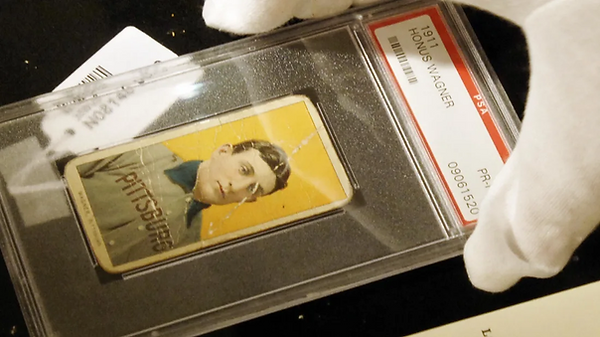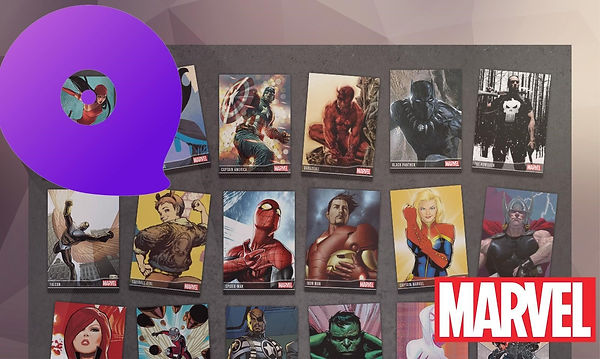On delivering true property rights to gamers and virtual assets and the vision of Animoca Brands
A little over two years ago we laid out our vision to make Animoca Brands a game industry leader by developing the capability to deliver true digital ownership to gamers, which today number approximately 2.5 billion (Newzoo, 2019).
Our progress has been notable. Animoca Brands’ strategy has resulted in strong influence and opportunity in the space of blockchain gaming, and we are ranked #5 on BlockchainGamer.biz’s list of Top 50 blockchain companies 2020. The Sandbox, one of the world’s first decentralised games based on user generated content, ranked #13 in the same list (The Sandbox is developed and published by a subsidiary of Animoca Brands). Various of our investment portfolio companies were also ranked, including Dapper Labs (#3), Sky Mavis (#6), WAX (#9), Experimental (#15), Decentraland (#18), and Lucid Sight (#23).

The opportunity of Virtual Asset Ownership (true digital ownership)
In 2019, the video gaming industry famously generated over US$150 billion in revenue (more than the music and film industries combined). Virtual goods were estimated to generate approximately US$50 billion, and are projected to grow to US$189.76 billion within five years (Adroit Market Research, 2019).

Almost everyone who plays video games today buys some form of virtual goods, such as virtual cars, character equipment, and “skins”. Most players think that they own the virtual goods they purchased.
But they don’t own those virtual goods. Ownership of the vast majority of virtual goods is merely an illusion that can evaporate in a moment, regardless of the amount of money invested.
That’s because virtual goods are typically provided as a licensed service, and are subject to the terms of service that a publisher has specified for the use of those assets (for example, the assets remain the property of the publisher, and you are not allowed to use them outside of the game where they are provided).
In effect, the games industry is renting virtual goods to players. That’s not ownership.
We believe that this “rental” system - despite its tremendous growth - restricts the full potential of the games industry, because it limits engagement. This is a factor that we believe contributes to the extremely low player conversion rates in gaming, which has an average conversion rate from a free to a paying user of under 3%. Why would users want to pay for something that they never actually own, and that can be taken away whenever a game publisher decides to shut down the game or alter its terms of service?
Today’s games industry is held back by antiquated practices of “rental ownership” and we are certain that gamers would prefer to have true ownership and control over their virtual goods. We believe that blockchain technology is the best option to deliver true and lasting property rights for virtual assets: true digital ownership can be enabled by utilizing non-fungible tokens (NFTs), a type of cryptographic token on blockchain that can represent a digital asset (such as a magic sword or a racing car).
The success of some of our initiatives over the past year provides some validation for this view:
- the sale of virtual LAND in The Sandbox recently surpassed the US$1 million mark (approx. A$1.5 million);
- our F1® Delta Time NFT auctions have enjoyed strong demand - from the record-setting first edition “1-1-1” car, which sold for about US$ 113,000 (approx. A$163,000), to the game’s first ever crate sale, which generated over US$364,000 (approx. A$555,000);
- the partnership between our subsidiary nWay and Forte’s blockchain platform.
Brands lead the way
True digital ownership becomes even more relevant when the digital assets are for well-known brands - goods that you can identify with, and perhaps even love. The collectible space is estimated to be worth US$370 billion (Forbes, 2016). The baseball card T206 Honus Wagner sold for a record US$3.12 million (Yahoo Finance, 2016). At the end of last year, the chassis (not the car, just the chassis) of the Ferrari F1 racecar that Michael Schumacher drove in 2002 was sold at auction for over US$6.6 million (RM Sotheby’s, 2019).

Brands have power for fans, and the history and provenance of a branded asset confer to it a deeply special meaning - and, clearly, similarly special pricing.
Brand power helps to inform our acquisition strategy. This is why, for example, we acquired Quidd, which has arrangements with over 325 brands for the purpose of digital collecting. Quidd includes hugely popular brands from Marvel (e.g., Iron Man, Captain America, Spider-Man among many more), Star Trek, and various other well recognized collectible intellectual properties.

True digital ownership means true digital value
In modernised countries, we now spend most of our waking hours in front of a screen (Nielsen Total Audience Report, 2018). On average, the 2.5 billion gamers around the world each spend more than 7 hours a week playing games (Limelight Networks’ State of Online Gaming, 2019). Those gamers create value primarily for game publishers, but the shift toward true digital ownership means that gamers will be able to (truly) own and leverage a portion of that value.
True digital ownership means that the item is yours to do with as you please - and that means that it has true value. That rare virtual item you worked so hard to obtain is something that you can now sell to another player or even to a collector of rare items. You could generate real money by playing in a virtual world. This is, clearly, incredibly appealing to large numbers of people.
With the true digital ownership enabled by blockchain, the billions of hours and billions of dollars that our species invests in interactive entertainment will generate real and direct value for its participants. This is not fantasy - this is already happening today on a relatively small scale, it’s growing, and we intend to grow it much more aggressively.
In the near future, digital goods that are able to deliver direct value and ownership will significantly increase user engagement, leading to a win-win for all parties involved.
We believe that all (or most) digital elements will, eventually, have the potential to carry value and ownership, and that this trend will be led by the gaming industry. We believe that, given the choice, gamers will choose to play in virtual worlds where they truly own their acquisitions instead of merely renting them.
Gamers (and all other consumers who are digitally invested) want their time and effort to attain a measure of value that is not dependent on the fate of a specific game or the whims of a centralized operator. Thanks to blockchain, gamers are able to truly own and trade the virtual assets in their games.
Ownership will increase value perception, which will increase conversion
The smartphone gaming industry generated nearly US$70 billion in revenue in 2019 and is estimated to generate over US$95 billion in 2022 (Newzoo, 2019), driven by a freemium-to-paid conversion rate of just 3% or lower. This means that an increase of 1% to the conversion rate represents an opportunity of over US$20 billion for the entire mobile games market.

We believe that the missing link to significantly increase conversion is the added value of true digital ownership and control, made possible by blockchains and NFTs.
Gamers will gain greater confidence to spend their time and money in games and other digital products if they have assurances of genuine digital ownership and permanence. We are in the early stages of a significant market shift that is as momentous as the early days of the Internet or the smartphone revolution.
We believe that genuine digital ownership and cross-platform operability will drive significant demand for digital products and services, and evolve into a significant new market for digital goods (a market that did not even exist just a few years ago).
With millions of users playing our branded games such as Power Rangers: Battle for the Grid, Power Rangers: Legacy Wars, Snoopy’s Town Tale, Crazy Defense Heroes, MasterChef: Dream Plate and many more we believe that we are well positioned to transform the world of gaming by delivering true property rights to gamers.

Power Rangers: Battle for the Grid is one of our most exciting titles
I wish to extend my heartfelt gratitude to all of our shareholders, customers, and employees, whose dedication made it possible for Animoca Brands to become a globally recognised company in the exciting fields of gaming and blockchain.
Yat Siu
Co-founder and Chairman
Animoca Brands

.svg)